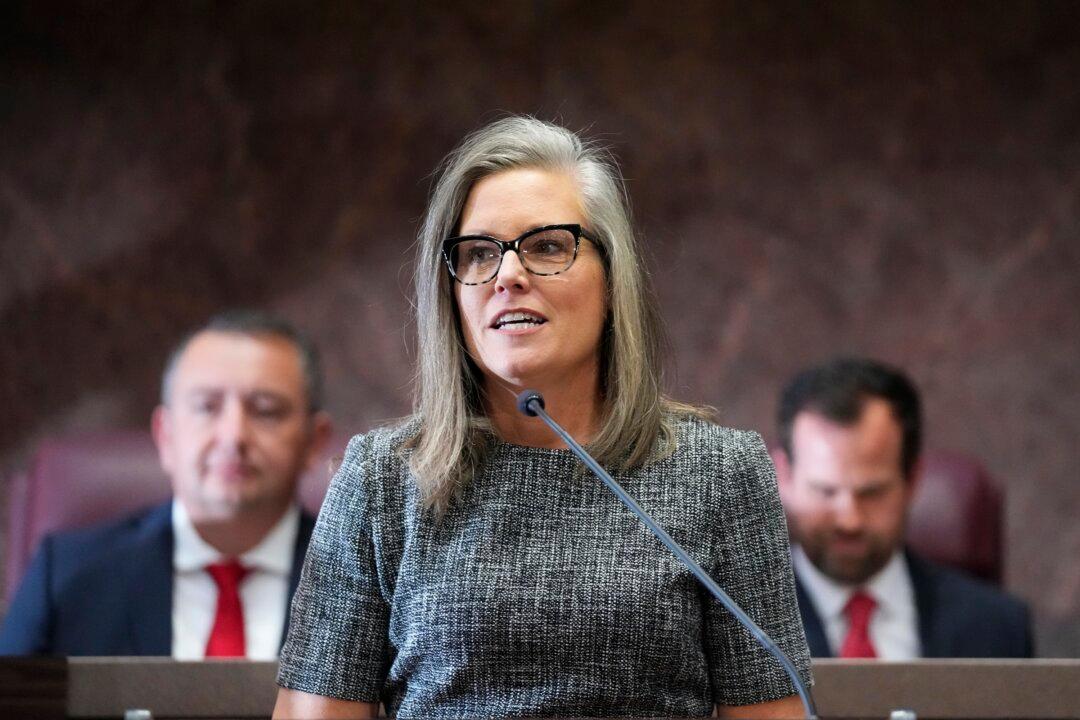Arizona Gov. Katie Hobbs on March 28 vetoed a Republican-led bill that would have banned municipalities from taxing groceries, granting some relief to Arizonans struggling with soaring inflation.
Senate Bill 1063 (pdf) was sponsored by Majority Leader Sonny Borrelli and passed the Republican-majority Legislature last week.




